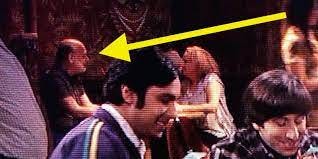And the Nobel Prize in Economics goes too...
"Well, actually it's the Sveriges Riksbank Prize in Econom..." Shhh! No one cares. It's the Nobel Prize in Economics.
Takeaways (without the BS)
Ben Bernanke, Douglas Diamond, and Philip Dybvig shared the award for research on banks and financial crises.
Yes, Bernanke really worked at a restaurant at the South of the Border attraction.
Don’t miss this great podcast from NPR’s The Indicator from Planet Money (about 9 mins)
Why did they win the award?
Lots of people have already written on this, so I don’t want to reinvent the wheel. Simply put, we are all better off because of their research. The Great Recession would have been much worse without this research and without Ben Bernanke leading the Fed during that time.
Generally speaking, our financial system allows for many wonderful things. For example, I can deposit my paycheck into a bank instead of having to keep cash in a safe in my home. Even better, the bank will pay me a little bit of extra money (in interest) if I keep my money at their bank. Another feature of our financial system is that I can buy a home without paying the full price in advance — I get a loan from a bank in exchange for giving them part of my income over time. I can go to the bank anytime I want and withdraw all of my money, but the bank cannot come to me and demand that I pay off my 30-year loan 20 years early. This is great for me as an individual because it allows flexibility, predictability, and stability in my life. It also allows me to accumulate wealth because I can own an asset earlier in my life than would be possible without this setup.
However, herein lies a problem for banks: maturity mismatch. Banks use the deposits from people to make longer-term loans, like a home loan. This means the bank does not act as a storage facility. As soon as you deposit your money, they loan most of it to someone else. If many people try to withdraw their money from the bank simultaneously, the bank is not going to have it. Even worse, simply the rumor that a bank might not have enough money on hand could create a panic…a bank run, as brilliantly depicted in It's a Wonderful Life. This can quickly bring an entire economy to its knees.
With this risk, how do we ensure the economy functions smoothly? Deposit insurance (i.e. FDIC) and an independent central bank are two key features of our system. Bank runs are extremely dangerous because they can be contagious. Even if your bank is solvent, if your neighbor’s bank doesn’t have enough money to meet her liquidity needs, then you might want to take your money out of your bank — you know, just in case. This can quickly turn into a liquidity crisis. Lucky for us, the Nobel Prize winners studied this issue extensively and, even more fortunately, one of them (Bernanke) was leading the Fed at a time when his exact expertise was most needed. Their research helped prevent the Great Recession from becoming The Great Depression II.
Want to know more?
Here are a couple Twitter threads I enjoyed reading that provide much more details about the specific contributions of each winner:



This article from the Financial Times is also a good, quick explainer.
Other Fun Stuff
The winners probably wish they won last year. The Swedish currency has lost about 20% of its value relative to the US dollar since that time:
Ben Bernanke briefly waited tables at a South of the Border restaurant before going off to college. If you make the drive between North Carolina and South Carolina, you will go through Ben Bernanke interchange shortly after passing South of the Border. You can read more about his personal life in his memoir.
Bernanke also made a cameo in one of my favorite sitcoms, The Big Bang Theory. Here’s a clip of the episode from The Washington Post.






